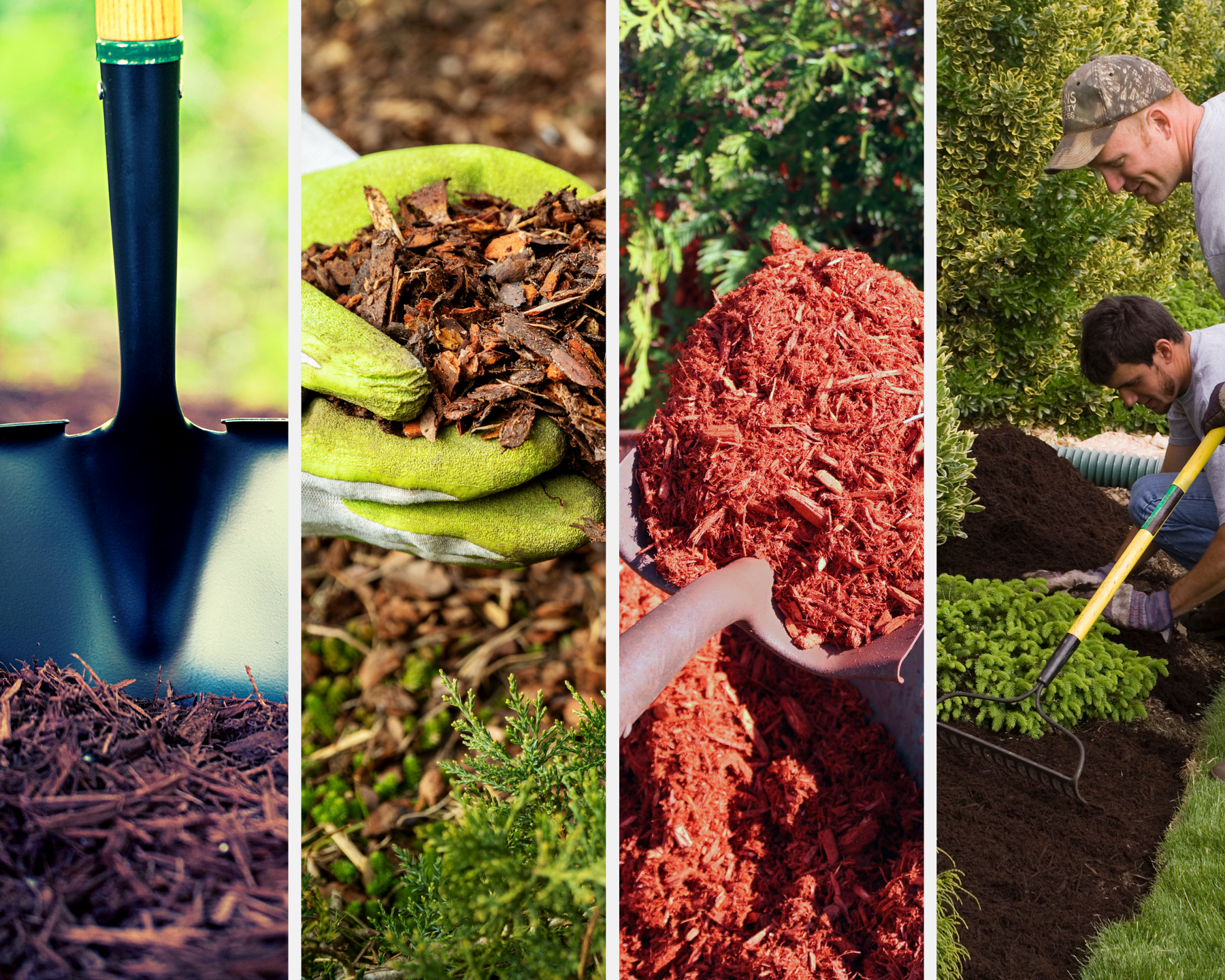Get 20% off 5 yds or more of Black Dyed, Brown Dyed, or Triple Shred Mulch. Use code EARLY25 at checkout.

Mulching Your Garden for Spring: Tips and Tricks
As temperatures begin to warm up after winter ends, many gardeners get excited about the opportunities to grow and cultivate beautiful plants, flowers, and vegetables in their gardens. However, before you begin planting, it's important to consider the benefits of mulching your garden.
Mulching is a process of adding a layer of organic or inorganic material on top of the soil in your garden. This layer can be made up of tree bark, wood chips, leaves, grass clippings, compost, or even stones or gravel. Not only does mulching improve the aesthetics of your garden, it provides various benefits, especially in the spring season.
Benefits of Mulching in Spring
-
Moisture retention: Mulching helps to retain moisture in the soil. As the temperatures rise in spring and summer, the soil can dry out quickly, causing stress to plants. Mulch acts as a barrier, slowing down the evaporation of water from the soil and protecting the roots from drying out.
-
Weed suppression: Mulch helps to suppress weeds by reducing the amount of sunlight that reaches weed seeds. By blocking the light, mulch prevents the weed seeds from germinating and growing. This means less time spent weeding and more time enjoying your garden!
-
Soil protection: Mulch helps to protect the soil from erosion, especially during heavy rains. It also helps to insulate the soil, keeping it cool in hot weather and warm in cold weather.
-
Nutrient retention: Certain types of mulch, such as compost or grass clippings, break down over time and add nutrients to the soil. This can help to promote healthy plant growth throughout the growing season.
Tips for Mulching Your Garden
-
Choose the right type of mulch for your garden: As mentioned, there are many different types of mulch, and each has its own benefits and drawbacks. Consider the needs of your garden and choose the type of mulch that will work best.
-
Apply mulch at the correct depth: The depth of mulch you apply will depend on the type of mulch you choose. As a general rule, apply organic mulches to a depth of two to four inches, but be careful not to smother the plants or create a thick, water-resistant layer.
-
Mulch around the base of plants: Be sure to keep the mulch at least a few inches away from the base of the plant to avoid trapping too much moisture around the stem, which can lead to rot.
-
Add a new layer of mulch each year: Mulch breaks down over time, so it's important to add a fresh layer each year to maintain its benefits. You can also mix some of the old, decomposed mulch into the soil to improve its texture and nutrient content.
Whether you're an experienced gardener or a beginner, mulching your garden is an essential step towards successful plant growth. By providing moisture retention, weed suppression, soil protection, and nutrient retention, mulch helps to create a healthy environment for your plants to thrive. With these tips and tricks, you can achieve a beautiful, healthy garden in no time!

